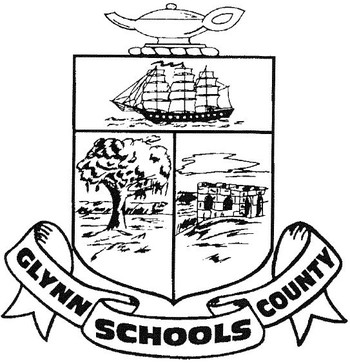
Based on the recently released Georgia Milestones End-of-Course (EOC) and End-of-Grade (EOG) assessment data, Glynn County Schools outpaced both the regional and state averages in nearly every subject area, highlighting positive momentum in growth in school level results across grade bands. Combined with the results of school districts across the state, Georgia students, as a whole, showed strong gains on the spring 2019 Georgia Milestones assessments, according to the Georgia Department of Education (GaDOE). Scores increased or held steady on 25 of 26 assessments – the strongest gains recorded in the five years the assessment has been administered.
“A strong K-12 education system is essential to keeping Georgia the best state in the nation to live, work, and raise a family,” Governor Brian Kemp said.“These strong results show impressive improvements in Georgia’s public schools, and I commend the educators and students of our state for their hard work.”
For EOCs, Glynn County Schools surpassed the state and RESA in Level 2-4 high school course assessments for ninth-grade literature, American literature, algebra I, geometry, biology, physical science, U.S. history and economics.
In terms of the EOGs, students in grades three through eight outperformed their peers in First District RESA and the state in English language arts (ELA). Similarly, both fifth grade and eighth grade exceeded the regional and state averages in science and social studies, although the results for third grade reading and seventh grade math were both equal to the state and above RESA.
“These highlights summarize the accomplishments of our students within the context of First District RESA and the State results. While there have been positive upturns in our trend data, connecting these results with standards-based instruction will be an ongoing effort as we continue to assist each school in their educational planning and provide district supports for personnel,” said Dr. Valerie Whitehead, executive director of strategy and innovation for Glynn County Schools.
In taking a closer look at trends for Levels 3 and 4, the district is seeing more students achieving the Proficient and Distinguished performance levels across grades and subject areas. Students who achieve these designations are considered on track to being college- and career-ready. There is a slight dip in Level 3 and 4 results in sixth grade math and seventh grade math; however, school and district administrators are creating new strategies with Eureka that will carry forward into middle school curriculum.
“We are proud and appreciative of all the outstanding work of our teachers, school administrators, district and, most importantly, our students,” said Glynn County Schools Superintendent Dr. Virgil Cole. “We want Level 3 to be the standard for Glynn County Schools, and these results are revealing the foundations for next level growth.”
In Georgia, the percentage of students achieving the Proficient Learner level and above increased or held steady on 25 of 26 End of Grade (EOG) and End of Course (EOC) assessments, compared to 22 of 26 assessments in 2018, according to the GaDOE’s data.
The largest increases, the report continued, were recorded in ninth-grade literature (increased 9 points), sixth-grade ELA (increased 7 points), third-grade math (increased 6 points) and third-grade ELA (increased 5 points).
Georgia Milestones’ Reading Status measurement – a Lexile score derived from reading and vocabulary questions on the ELA assessment – showed that the percentage of students reading on grade level or above increased or held steady in every tested grade and both English language arts high school courses. The largest increases were recorded in third grade (5 points), seventh grade (4 points), and ninth grade literature and composition (4 points).
The third-grade increase is particularly notable given the long-term impact of students’ ability to read on grade level by third grade, the GaDOE report stated.
About the test
Students began taking Georgia Milestones assessments in 2014-15. The testing system is one comprehensive program across grades 3-12, which includes open-ended questions to better gauge students’ content mastery.
Georgia Milestones assesses student learning along four levels of achievement:
Beginning Learners (Level 1) do not yet demonstrate proficiency in the knowledge and skills necessary at this grade level/course of learning, as specified in Georgia’s content standards. The students need substantial academic support to be prepared for the next grade level or course and to be on track for college and career readiness.
Developing Learners (Level 2) demonstrate partial proficiency in the knowledge and skills necessary at this grade level/course of learning, as specified by Georgia’s content standards. The students need additional academic support to ensure success in the next grade level or course and to be on track for college and career readiness.
Proficient Learners (Level 3) demonstrate proficiency in the knowledge and skills necessary at this grade level/course of learning, as specified in Georgia’s content standards. The students are prepared for the next grade level or course and are on track for college and career readiness.
Distinguished Learners (Level 4) demonstrate advanced proficiency in the knowledge and skills necessary at this grade level/course of learning, as specified in Georgia’s content standards. The students are well prepared for the next grade level or course and are well prepared for college and career readiness.


Chattooga Local Government
K-9 Georgia Dies in Hot Patrol Car; Dade County Launches Investigation

Chattooga Local News
Obituary: Mr. Chris “Hollywood” Ledbetter

Georgia Sports
What to know about All-Star Game: Lineups, pitchers, more

Chattooga Local Government
Secretary Raffensperger Calls for Return of Political Contributions from First Liberty & Affiliates

Bulloch Public Safety
06/23/2025 Booking Report for Bulloch County

Bulloch Public Safety
06/30/2025 Booking Report for Bulloch County

Bulloch Public Safety
06/16/2025 Booking Report for Bulloch County

Bulloch Public Safety
7/11/2025 Booking Report for Bulloch County

Bulloch Public Safety
7/09/2025 Booking Report for Bulloch County





